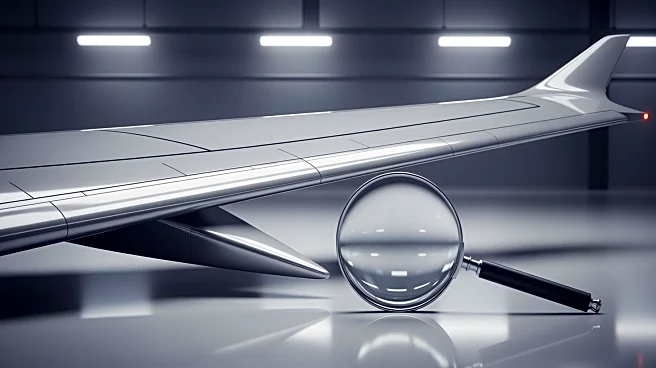What's Happening?
The European Commission has conditionally approved Boeing's acquisition of Spirit AeroSystems Holdings for $4.7 billion. The approval follows an in-depth review under the EU Merger Regulation, addressing competition concerns in the aerostructures and
large commercial aircraft sectors. Boeing proposed measures to maintain competition, including transferring Spirit's operations that supply aerostructures to Airbus, along with related assets and staff. Airbus reached a binding term sheet with Spirit to acquire certain activities linked to its supply chain, including production facilities in the U.S., France, Northern Ireland, Morocco, and Kansas. Boeing also offered to sell Spirit's facility in Malaysia to Composites Technology Research Malaysia (CTRM).
Why It's Important?
The acquisition is significant for the aerospace industry, as it could reshape supply chain dynamics and competitive relationships between major aircraft manufacturers. By transferring Spirit's operations to Airbus, Boeing aims to address competition concerns and prevent potential monopolistic practices. The deal could impact pricing and availability of aerostructures, influencing costs for aircraft manufacturers and potentially affecting ticket prices for consumers. The approval reflects the EU's commitment to maintaining fair competition in the aerospace sector, ensuring that major players like Airbus and Boeing operate on a level playing field.
What's Next?
An independent trustee will monitor the execution of Boeing's commitments under the European Commission's oversight. The transaction's completion will depend on the successful transfer of operations and assets to Airbus and CTRM. Stakeholders will be watching closely to see how the acquisition affects market dynamics and whether it leads to further consolidation in the aerospace industry. The deal's impact on supply chain efficiency and cost structures will be key areas of focus for industry analysts and competitors.
Beyond the Headlines
The acquisition highlights the strategic importance of aerostructures in the aerospace industry and the complexities of maintaining competitive balance. It underscores the role of regulatory bodies in overseeing major mergers and acquisitions to prevent anti-competitive practices. The deal may prompt other industry players to reassess their supply chain strategies and explore similar partnerships or acquisitions.
















